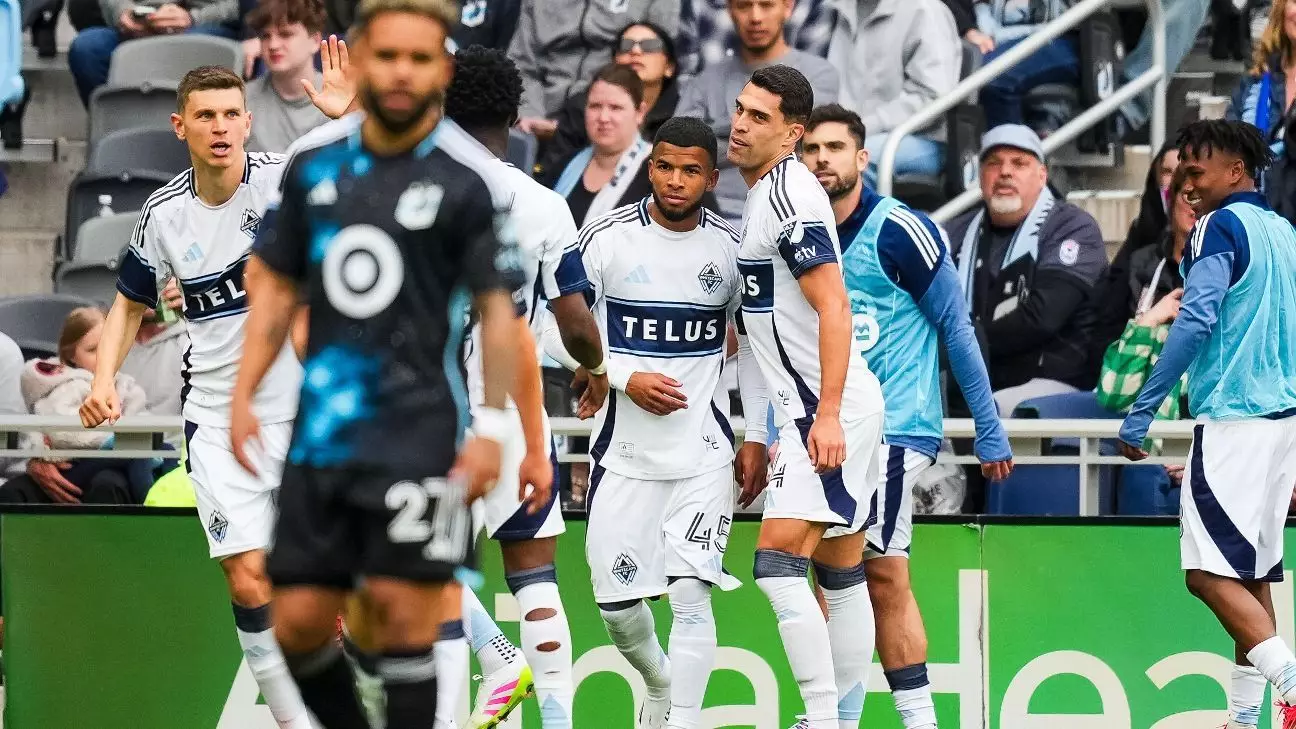In recent years, Major League Soccer (MLS) has faced scrutiny over player conduct, especially regarding discrimination. An incident that occurred during a match between Minnesota United FC and the Vancouver Whitecaps has once again thrust this issue into the limelight. Understanding the implications of such conduct and the league’s response is essential to creating a more inclusive environment within the sport.
This most recent episode took place in the dying moments of a match that ended with the Whitecaps triumphing over Minnesota United, 3-1. As tension brewed on the field, a verbal dispute erupted between Minnesota’s Joseph Rosales and Vancouver’s Emmanuel Sabbi, compounded by Sebastian Berhalter’s involvement, which seemed to escalate the situation. The referee, Drew Fischer, intervened in accordance with MLS protocol for incidents related to discrimination. However, his decision not to sanction any of the players involved suggests a lack of clarity regarding the exchange.
A Systematic Approach to Discrimination
While the league’s immediate reaction has been to label the incident as a violation of the Non-Discrimination Policy, it’s essential to examine the effectiveness of existing measures. MLS has had a checkered history with incidents of discriminatory remarks.
For example, the league dealt with notable suspensions in 2023, where key players like Kai Wagner and Dante Vanzeir received penalties for using racial slurs. These were significant moments in the league’s governance as they set precedents for penalties intended to deter such behavior. The overarching question remains: are these punitive measures sufficient?
The responsibility doesn’t lie solely with the individuals who verbally transgress; it also pertains to the broader system within which these players are situated. The league’s collaboration with organizations such as Black Players For Change and the MLS Players Association is commendable, but the implementation of training programs that educate players on acceptable behavior must be ongoing and more rigorous.
The Role of Teams in the Culture Shift
The response from Minnesota United reflects the broader sentiment within the league that discrimination in any form should not be tolerated. Their statement emphasizes a commitment to eradicating discriminatory behavior, suggesting that clubs are increasingly aware of their role in fostering an inclusive environment. However, it raises an important point about proactive engagement rather than reactive measures.
Clubs must take the initiative to not only condemn instances of discrimination but to actively engage their players in dialogues about inclusivity and respect. This involves not merely acknowledging past mistakes but working collaboratively with communities and advocacy groups to develop programs that encourage understanding and acceptance.
Turning Action into Change
The game itself is at a crossroads. With more players coming from diverse backgrounds, understanding the sensitivities surrounding language and behavior is paramount. The recent altercation could be viewed as a critical inflection point. Here lies a unique opportunity for MLS to lead in the sports world by emphasizing that discrimination is not merely an individual misstep—it’s a cultural epidemic that necessitates systemic change.
Establishing mandatory workshops that involve not only players but also coaches and staff can facilitate deeper internal conversations on race, equity, and respect. Further, clubs should strive to create a safe space where players from all backgrounds can express their concerns and lived experiences without fear of retribution. The goal should not only be to penalize those who falter but to raise consciousness among all players about the impact of their words.
The environment in which soccer is played today is far more aware and sensitive than before, demanding more from each player than just skill on the field. It’s time for MLS and its clubs to take a firm stand against discrimination with a message that resonates not only in the league but within each community it serves.
Claiming that harassment has no place in soccer is a necessary statement; acting on that claim with genuine resolve is what will truly define the character of the league and the sport moving forward.

